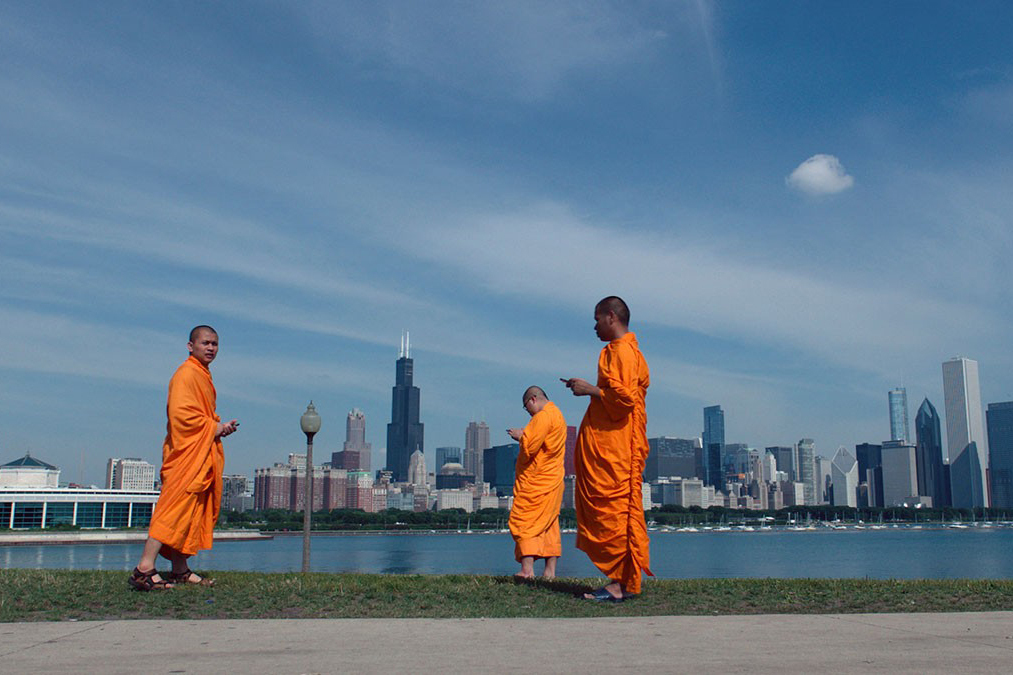Werner Herzog has been making films for 50 years, and when an artist lasts that long, the distance between his original defining self and his latest work can be dizzying. For instance, who could have predicted Herzog would become a kind of holy-oddball celebrity, renowned for his films but also for his sonorous all-purpose voice, his unexpected acting roles (bothering Tom Cruise in Jack Reacher), and his presence in inexplicable encounters (pulling Joaquin Phoenix from a car wreck in Los Angeles; being shot with a BB gun in the middle of a TV interview)? We seem to be living in Herzog’s world.
As for the films themselves, consider that when he reached his full powers in masterpieces such as Aguirre, the Wrath of God (1972) and The Enigma of Kaspar Hauser (1974), he was working in a raw, mystic style that examined man and nature in a strange new way. For Aguirre, Herzog threatened his leading man with a gun and almost lost his mind in the jungle; for Kaspar Hauser, he cast the lead role with a non-actor who had spent his youth in mental institutions. The films are inquisitive, open-ended, dancing along an edge of utter beauty and complete madness. The fact that either was completed at all is something like a miracle.
What is Herzog making a film about in 2016? The Internet. But if this sounds like a comedown, or a dry subject for a maniac, remember that Herzog’s work has always poked around extremities—the otherworldly moods of Klaus Kinski, the isolation of the bear-loving loner of Grizzly Man. So his documentary, Lo and Behold: Reveries of the Connected World, is perhaps not that far from his previous work. It consists of 10 vignettes, all related in some way to the outer boundaries of the Internet’s reach. We get a quick story about the Internet’s origins, a sketch about self-driving cars, and some speculation about what happens when the next big solar flare hits our wired Earth (it will be “unimaginably bad,” in the opinion of one scientist).
These factoids would be interesting if they were arranged in 60 Minutes segments, but with Herzog narrating and asking piercing questions, they become something more. Watching small robots—little Roomba-like boxes—play soccer against one another is fascinating enough. They’ve been programmed to learn and react (the Internet helps them learn from one another), and they’re no longer guided or controlled in any way while they’re playing. Then Herzog, in the midst of interviewing one of the scientists involved, asks a startling question about Robot 8, the soccer-bot that seems to have a special role in the experiment: “Do you love it?” The scientist admits that yes, yes, he does love Robot 8.
That leads into a segment on a Washington state rehab center for Internet addicts, which in turn leads to a town in West Virginia where the presence of a giant radio telescope requires an absence of electronic activity in the vicinity. The place has now become a haven for people who believe they suffer from electromagnetic hypersensitivity. There’s also a visit to a family still wounded from the way photographs of their dead daughter were shared online. When Herzog lets the camera run on these understandably distraught people, the mother eventually gets around to declaring that the Internet itself is the Antichrist, “claiming its victories.” Herzog has always excelled at creating discomfort, although in this case his focus is a little cruel.
Herzog is in better form when pondering what love will be in the future, or when he throws in philosophical questions like “Does the Internet dream itself?” He seems to find a kindred spirit in a tattooed scientist who scoffs at the idea of traveling to Mars (what, so we can ruin another planet?) mere minutes after we’ve heard from the upbeat Elon Musk on the same subject. It’s hard to imagine Herzog being optimistic about such things. In a way, though, this film’s sheer eccentricity and willfulness are gestures of optimism. They could not possibly have been conjured by a robot. Lo and Behold, SIFF Film Center, Rated PG-13. Opens Fri., Aug. 19.
film@seattleweekly.com






